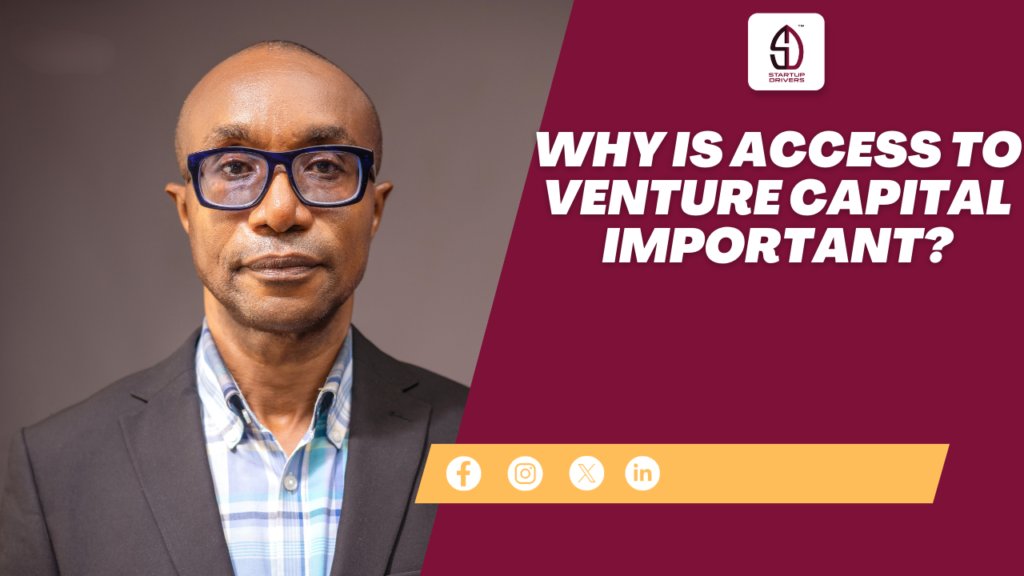The most successful fundraising outcomes often result not from a single pitch meeting but from carefully cultivated relationships developed over time. While many founders focus on perfecting their pitch deck or financial projections, the human element of investor relationships frequently determines who receives funding when multiple opportunities compete for limited investment dollars.
At Start-Up Drivers, we’ve observed that founders who develop meaningful connections with investors before actively seeking capital significantly improve their fundraising outcomes. These relationships provide more than just access to funding—they create a foundation of trust, understanding, and mutual respect that benefits both parties throughout the startup journey.
This article explores practical strategies for building strong, authentic relationships with potential investors. Whether you’re preparing for your first fundraising round or looking to expand your investor network for future growth, these approaches will help you develop meaningful connections that extend beyond transactional fundraising interactions.
Start Building Relationships Before You Need Capital
The best time to develop investor relationships is long before you actively need funding. Early relationship-building removes the immediate pressure of securing investment, allowing for more authentic connections focused on mutual learning rather than immediate transactions.
Identify potential future investors based on their investment thesis, portfolio companies, and sector expertise rather than simply their capital availability. Research their background, recent investments, public statements, and published content to understand their perspective and interests. This knowledge helps you initiate relevant conversations that genuinely engage their attention.
Reach out with specific, thoughtful questions about their expertise rather than generic meeting requests. Instead of asking for “feedback on your startup,” request their perspective on a specific industry trend they’ve written about or a challenge similar to one their portfolio companies might have faced. This approach demonstrates respect for their knowledge while creating natural opportunities for connection.
Frame initial interactions around learning and relationship-building rather than immediate investment. Be transparent that you’re not fundraising but building connections with knowledgeable people in your space. This clarity removes pressure from the conversation and often makes investors more receptive to engaging, as they aren’t being asked to evaluate an immediate opportunity.
Provide Regular, Valuable Updates
Once you’ve established initial contact, maintain the relationship through consistent, valuable communication demonstrating your execution capabilities and thoughtfulness. Regular updates keep you top-of-mind without requiring continuous meetings or calls.
Send concise monthly or quarterly updates highlighting significant milestones, key metrics, challenges you’re addressing, and upcoming goals. These updates should be brief (typically less than one page) but substantive, focusing on meaningful progress rather than activities. Include positive developments and challenges you’re working through, demonstrating transparency and a balanced perspective.
Personalize communications by referencing previous conversations or advice they provided. For example, “Following our discussion about customer acquisition channels, we tested the approach you suggested and saw a 30% improvement in conversion rates.” This personalization shows you valued their input and took concrete action based on it.
Share insights or information that might interest them beyond your specific company. This might include relevant industry research, introductions to other founders working on complementary technologies, or your market observations connecting to their investment thesis. This value-added approach positions you as a thoughtful partner rather than a potential investment.
Ask for specific, limited advice rather than general feedback or support. Thoughtful questions that leverage their particular expertise show respect for their time while creating natural opportunities for them to engage with your business. Focused requests like “Could you share your perspective on our pricing strategy given your experience with Company X?” are more likely to receive meaningful responses than open-ended requests for “thoughts on our business.”
Demonstrate Authentic Interest in Their Perspective
Like everyone else, investors appreciate genuine interest in their knowledge and viewpoint. Building relationships transcending transactional interactions requires genuine curiosity about their experience and thinking.
Research their professional background and investment philosophy before meetings to ask informed questions. Review their public content—blog posts, interviews, podcast appearances, and social media—to understand their perspective on relevant industry trends or investment approaches. This preparation demonstrates seriousness and allows for more substantive conversation.
Ask about their investment thesis and what they’ve learned from previous investments. Understanding how they think about markets, business models, and company development helps you frame your opportunity in terms relevant to their approach. These discussions also reveal whether your business aligns with their fundamental investment strategy.
Seek their perspective on industry trends and market developments beyond your specific company. These broader conversations often reveal insights about how they evaluate opportunities and what future developments they anticipate. They also create space for relationship-building beyond immediate investment consideration.
Listen actively and follow up thoughtfully on their inputs. Take notes during conversations, reflect on their perspectives, and reference specific points in subsequent communications. This follow-through demonstrates that you value their insights rather than simply going through relationship-building motions.
Build Credibility Through Consistent Execution
Nothing builds investor confidence more effectively than consistently delivering on your commitments and demonstrating progress. Your actions between formal fundraising periods often determine investor interest when you eventually seek capital.
Set clear, measurable goals and report honestly on your progress toward them. When you share objectives with potential investors, track your performance against these targets and provide transparent updates, whether you’ve exceeded, met, or fallen short of your aims. This accountability creates trust in your communications and execution capabilities.
Acknowledge setbacks and explain your learning and adaptation. All startups encounter challenges, and sophisticated investors know this. Your response to difficulties—analysing problems, adjusting strategies, and implementing solutions—often reveals more about your capabilities than uninterrupted success would. Share these experiences candidly, focusing on your process for addressing challenges rather than making excuses.
Show increasing momentum over time through improving metrics and milestone achievement. Even if progress comes in irregular bursts rather than smooth growth curves, demonstrate that your business is consistently moving forward. Highlighting trend lines over multiple update periods helps investors visualize your trajectory and builds confidence in your execution.
Reference and build upon previous conversations and advice to show continuity and integration of feedback. When investors see that you carefully consider their input and thoughtfully incorporate relevant suggestions, they develop confidence in both your openness to guidance and your discernment about which advice applies to your specific situation.
Expand Relationships Beyond Formal Business Discussions
The strongest investor relationships often develop through connections that extend beyond formal pitch meetings or update calls. Creating opportunities for more personal interaction can significantly strengthen these relationships.
Attend industry events where investors will be present, creating opportunities for casual interaction. Face-to-face conversations in less structured environments often build stronger connections than formal meetings alone. These settings allow for more natural conversations about industry trends, mutual connections, or personal interests that might not arise in business-focused meetings.
Connect investors to relevant opportunities or people in your network without expectation of immediate return. Making thoughtful introductions that benefit them demonstrates your value as a network node and your commitment to mutual benefit rather than one-sided advantage. These generous actions often come back to you in unexpected ways.
Engage with their content and public commentary in authentic, thoughtful ways. When investors publish articles, speak at events, or share perspectives on social media, engaging substantively with their ideas creates additional connection points. Thoughtful comments or questions that extend the conversation show genuine interest in their thinking.
Remember to reference personal details they’ve shared while respecting appropriate boundaries. Simple acknowledgements of their interests, recent travels, or professional milestones demonstrate that you view them as people rather than merely sources of capital. These personal touches should be authentic and appropriate rather than forced or overly familiar.
Navigate Rejection Constructively
Not every investor relationship will lead to investment, regardless of how carefully you’ve cultivated the connection. How you handle declined opportunities significantly impacts whether these relationships remain valuable for future rounds or other forms of support.
Respond to past investment opportunities professionally and with an appreciation for their time. Express genuine thanks for their consideration and any insights they’ve shared. This gracious response opens the door for future interaction rather than burning bridges out of disappointment.
When appropriate, ask for specific feedback about their decision, framing the request as an opportunity for continued improvement rather than challenging their judgment. Questions like “Could you share what factors were most important in your decision? “This would help us understand how to strengthen our business going forward.” invite constructive input.
Maintain the relationship even after a declined investment by providing occasional updates and value. Many investors who pass on early rounds become interested in later stages as the business develops and risk decreases. Regular updates that demonstrate continued progress keep these doors open for future consideration.
Use feedback from declined opportunities to strengthen your approach with other potential investors. Patterns in investor concerns often highlight areas that warrant your business or presentation attention. Addressing these issues improves your position with new investors and those who previously declined but might reconsider in future rounds.
Leverage Existing Investor Relationships to Expand Your Network
As you build relationships with some investors, these connections can help expand your network to others through strategic introductions and credibility transfer.
Ask current investors or investor relationships for targeted introductions to specific investors rather than generic networking. Research potential targets thoroughly and explain why you believe there might be a mutual fit based on their investment thesis, portfolio, or stated interests. This targeted approach increases the likelihood of meaningful connections.
Prepare your existing contacts to make effective introductions by providing clear, concise information about your business and specific reasons why the introduction makes sense. A brief overview of your company, recent traction highlights, and why you’re interested in meeting the specific investor makes introductions more likely to succeed.
Leverage social proof from respected investors even before they’ve invested financially. When appropriate and with permission, mentioning that established investors are advising or showing interest in your company can help open doors with others. This social validation often carries significant weight in investor communities.
Attend investor-focused events with warm introductions whenever possible. Having existing investor relationships vouch for you at pitch events, demo days, or industry conferences significantly increases the attention and credibility you receive compared to participating without these connections.
Conclusion
Building strong relationships with potential investors requires consistent effort, authentic engagement, and strategic approach. The most successful founders recognize that these relationships represent much more than just access to capital—they provide valuable guidance, market insights, credibility signals, and network expansion that benefit their companies throughout their development.
Remember that the strongest investor relationships are built on mutual benefit rather than transactional thinking. When you approach these relationships with genuine curiosity, respect for investor expertise, and commitment to creating value for all parties, you develop connections that transcend individual funding rounds and contribute to your company’s success throughout its journey.
Investing time in relationship building may seem less urgent than other startup priorities, but the returns on this investment often prove decisive when seeking capital in competitive funding environments. Start cultivating these relationships today, even if active fundraising remains months or years away.



